I've spent years digging into keyword strategies, and one thing keeps surprising me: so many SEO pros skip over terms that show zero search volume in tools like Ahrefs or Semrush. They figure no one's searching for them, so why bother? But that's a trap I've fallen into myself early on, and it cost me real traffic opportunities.
Here's the reality. These zero-volume keywords aren't dead ends—they're often hidden paths to engaged users ready to convert. In my experience building organic traffic for SaaS platforms, they've driven thousands of qualified visits without the cutthroat competition of high-volume terms.
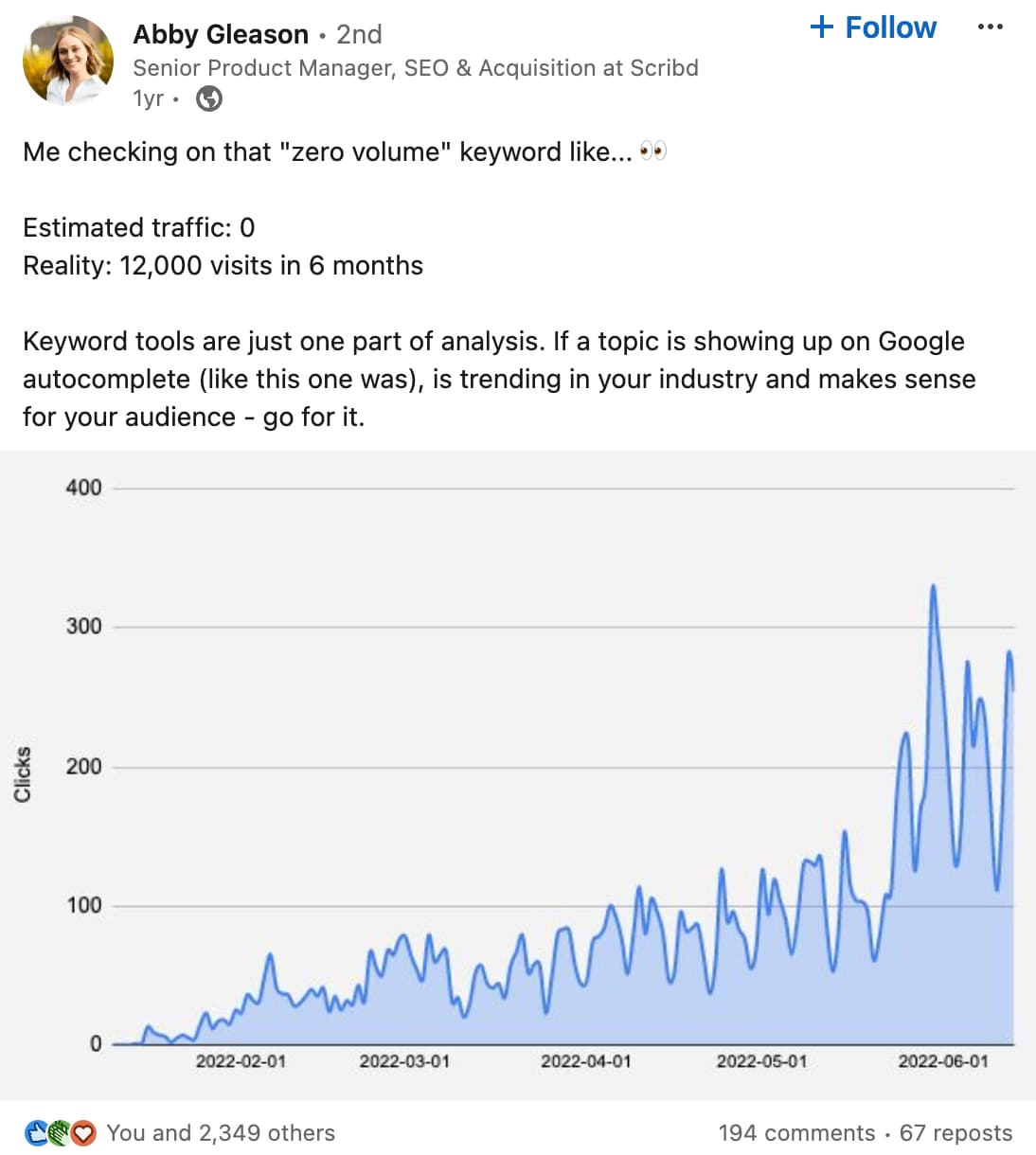
Think about it. Tools report zero volume because they can't capture every nuance of search behavior—Google processes trillions of queries annually, but data gets filtered. According to LowFruits' analysis, there are two trillion searches per year, yet keyword tools still claim some terms have zero volume. I've seen this firsthand: one "zero" keyword brought in 7,000 impressions for a client project, proving the tools miss the mark.
Now, compare that to low-volume or long-tail keywords. Zero-volume ones are even more specific, often signaling strong buying intent with minimal competition. They rank faster too—sometimes in weeks, no backlinks needed. But watch out for pitfalls like over-relying on inaccurate tool data; blend it with real insights from your team or Search Console instead.

Throughout this post, I'll share how I've turned these overlooked gems into traffic drivers, with practical ways to find and optimize them. If you're chasing better ROI in crowded niches, this could shift your approach entirely.
Blog post summary for not having +10min time

If you're short on time, here's the quick rundown on zero-volume keywords and why they matter in your SEO game. These are search terms that pop up as zero in tools like Ahrefs or SEMrush, but don't let that fool you—they can still pull in real traffic. I've targeted them in competitive niches and watched them deliver engaged visitors without the usual battle for rankings.
Keyword tools miss a lot; they don't catch every query, especially those niche, long-tail ones. That's where the opportunity lies—less competition means you can rank faster, often in weeks, with content that speaks directly to user intent. However, over-relying on tool data is a common pitfall. Instead, blend it with real-world insights from your team or customer chats to uncover these hidden gems.
- Zero-volume keywords attract highly specific audiences ready to convert, unlike broader terms with heavy rivalry.
- Use Google's autocomplete and 'People Also Ask' to spot them—they reveal what people actually type.
- Check Google Search Console for terms already driving impressions; it's gold for validating potential.
- Talk to your sales or support teams—they hear the exact phrases customers use in conversations.
- Build high-quality content around them to boost engagement and stand out in crowded markets.
In my experience, these keywords have turned overlooked queries into conversion drivers, especially when paired with semantic optimization. Focus on relevance over volume, and you'll see the difference in your metrics.
What are zero volume keywords?
Let's start by demystifying what zero-volume keywords actually are.
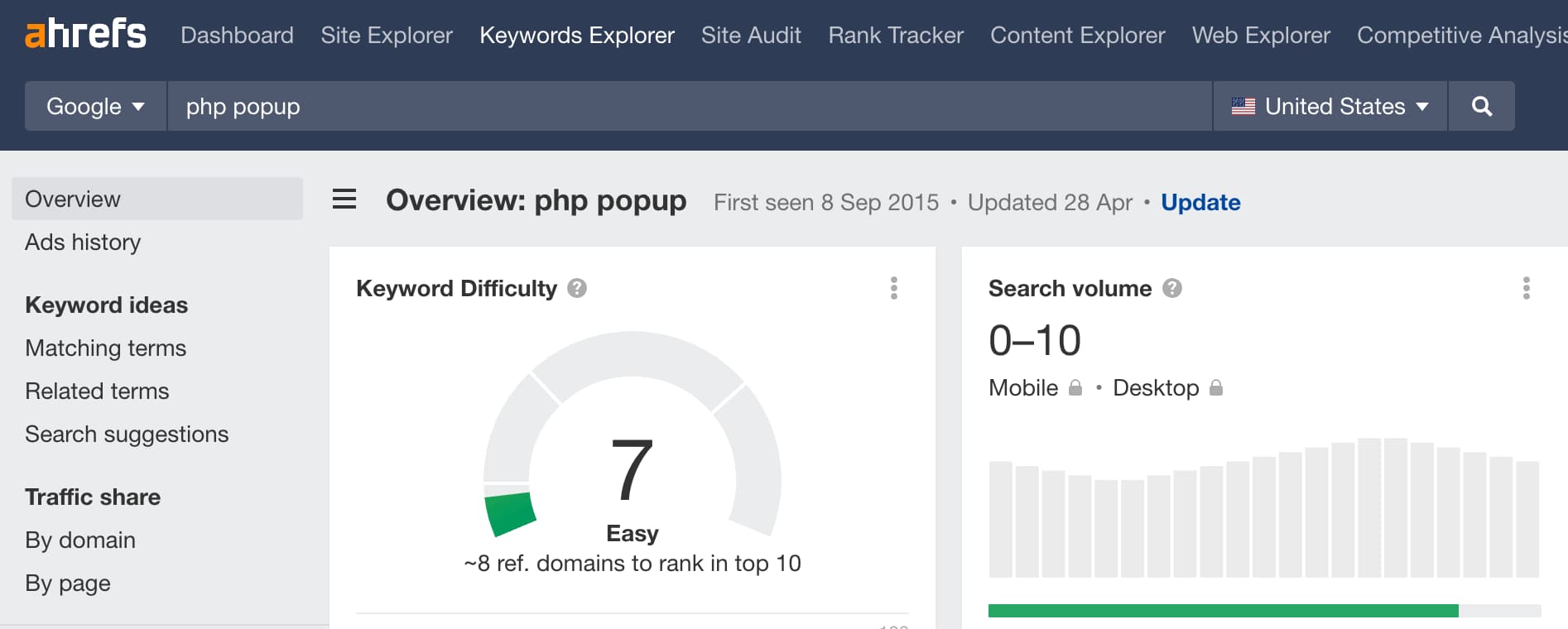
Take an example from our work at Popupsmart. We targeted the zero-volume keyword "php popup," and Ahrefs showed no volume at all. However, as the data revealed, it pulled in 185 impressions and 56 clicks. We've chased plenty of these terms, generating over 10K traffic and solid leads that convert.
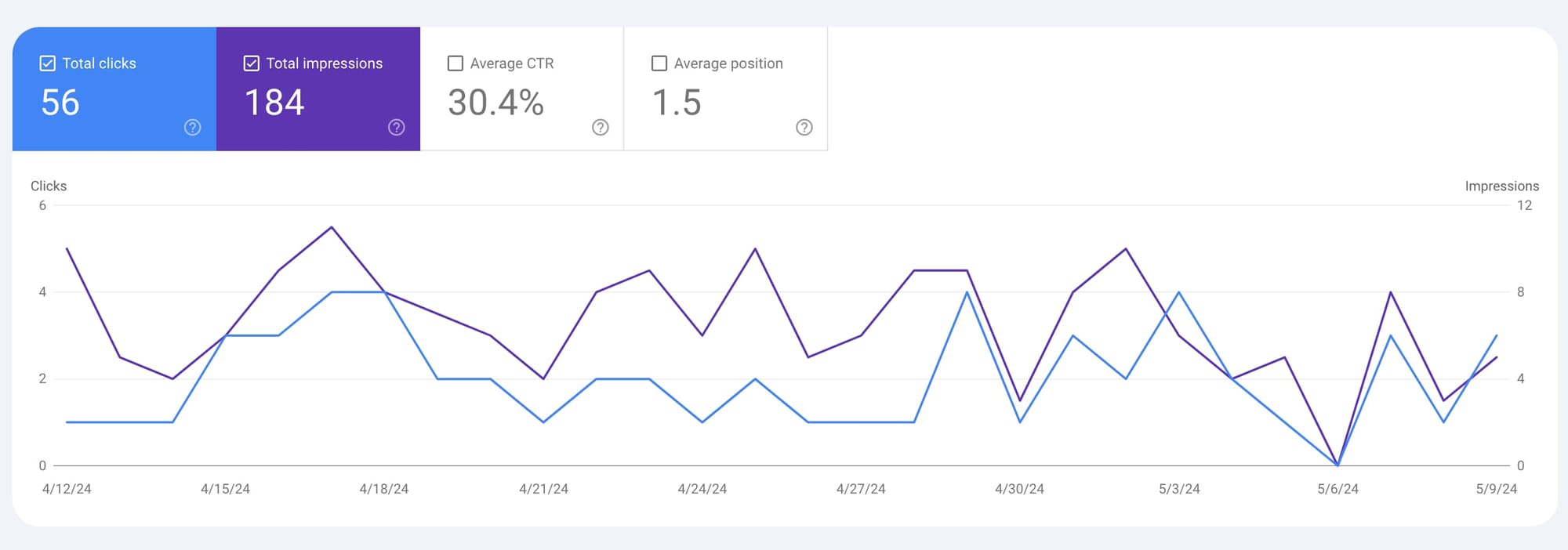
It's crucial to remember that these tools, while valuable, are not infallible. They don't capture every single search query because search engines don't share all keyword data. So, when we talk about zero-volume keywords, we're really discussing terms that tools overlook, not ones with zero real searches. In my experience, this gap often hides high-intent opportunities.
Unlike low-volume keywords, which might show 1-10 searches monthly, zero-volume ones are even more niche—think ultra-specific long-tails with strong buying signals but no reported data. Tools underreport due to sampling limits, leading to pitfalls like ignoring them entirely. Focus on relevance over metrics; I've seen them rank fast without backlinks.
Therefore, blend tool data with real insights to spot them effectively.
Importance of Zero Volume Keywords in SEO Strategy
You might be wondering, If these keywords supposedly have no search volume, why should I care about them? That's a valid question. The answer lies in the potential that these keywords hold. In my work optimizing for competitive niches, I've seen them deliver targeted traffic that high-volume terms can't match, often converting at higher rates due to their specificity.
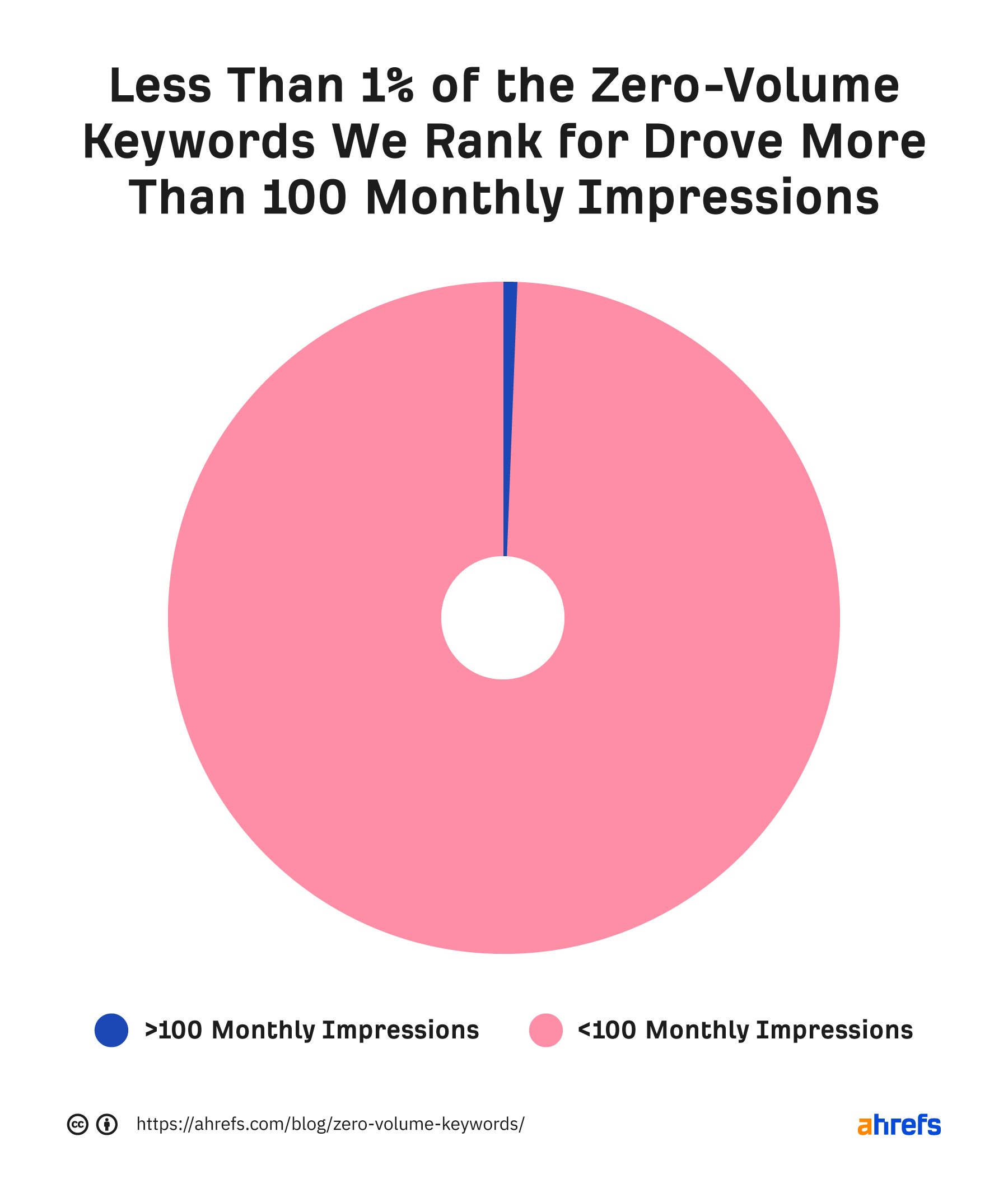
Just because a keyword research tool doesn't register any volume for a particular search term doesn't mean that the term is useless. On the contrary, these zero-volume keywords can often be less competitive, making it easier for your content to rank for them. Plus, they can be highly relevant and specific, which means that while they might attract fewer visitors, those visitors could be more engaged and more likely to convert.
Compared to low-volume keywords, which might show 1-10 searches monthly, zero-volume ones dive even deeper into user intent, often signaling readiness to buy without the noise of broader terms. However, a common pitfall is dismissing them based on tool inaccuracies—tools underreport due to data sampling limits. Therefore, focus on blending them into your strategy for faster wins.
I've targeted them to build topic clusters that boost overall authority, turning overlooked queries into steady traffic sources. I also suggest Ahrefs' post on targeting zero-volume keywords for more on when it makes sense. As a result, integrating them can transform your SEO from volume-chasing to intent-driven.
8 Ways of Finding Zero Volume Keywords
For example, if you're in the tech industry, you might know that people often search for specific error codes. These codes might not show up in keyword research tools, but if you create content around them, you could attract a highly targeted audience. I wrote a post about achieving 150k monthly traffic by writing AI-supported content without any search volume regarding error codes—it's a tactic that's paid off repeatedly.
1) Use of Google Autocomplete and Conjure Up New Ideas
A useful method for finding zero volume keywords is to use Google's own features: autocomplete and 'people also ask'.

When you start typing a query into Google, it will suggest completions based on what other people have searched for. These suggestions can often include long-tail keywords that don't show up in keyword research tools.
Similarly, the 'people also ask' feature shows questions that people often ask related to your query. These questions can also be a great source of zero-volume keywords. I've used this to spot terms like "best vegan leather alternatives" in fashion niches, which tools ignored but drove real clicks.
2) Search console & Google Ads keyword planner has always more keyword ideas.
While intuition and industry knowledge are important, it's also crucial to base your decisions on data. This is where tools like Google Search Console come in.
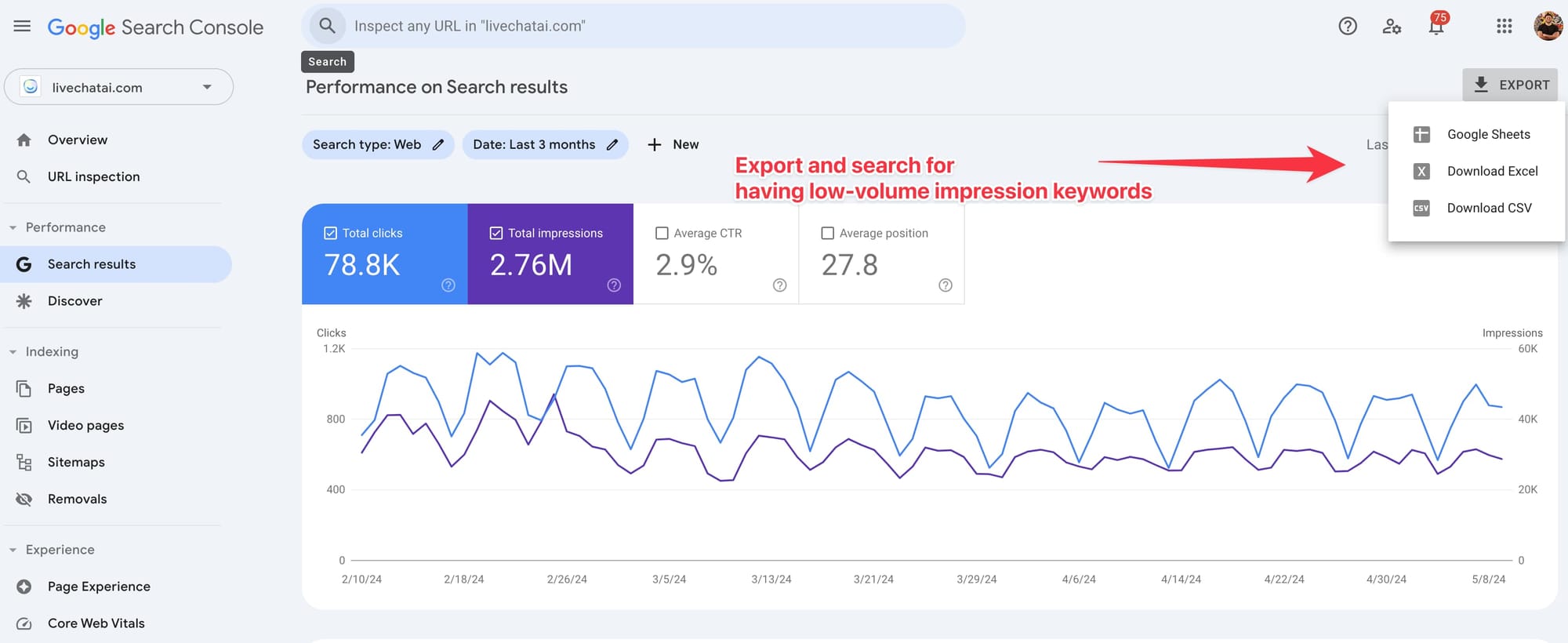
For instance, you might find that a certain term is driving a lot of traffic to one of your pages even though it shows zero volume in keyword research tools. This could be a sign that you should create more content around this term. However, don't stop there—cross-reference with Google Ads planner for broader ideas that tools underreport.
Finding zero volume keywords requires a mix of industry knowledge, use of Google's features, and data analysis. By combining these methods, you can uncover hidden gems that can drive traffic and conversions to your site. As a result, your strategy becomes more intent-focused and less reliant on flawed volume metrics.
3) Talk to your sales and customer service teams
A key strategy in uncovering zero volume keywords lies within your own organization - specifically, your sales and customer service teams. These teams interact directly with your customers and prospects, providing them with a wealth of knowledge about common questions, issues, and concerns related to your product or service.

Aleksandra Zarzycka, an SEO specialist at TourRadar, emphasizes the value of this internal knowledge. She notes,
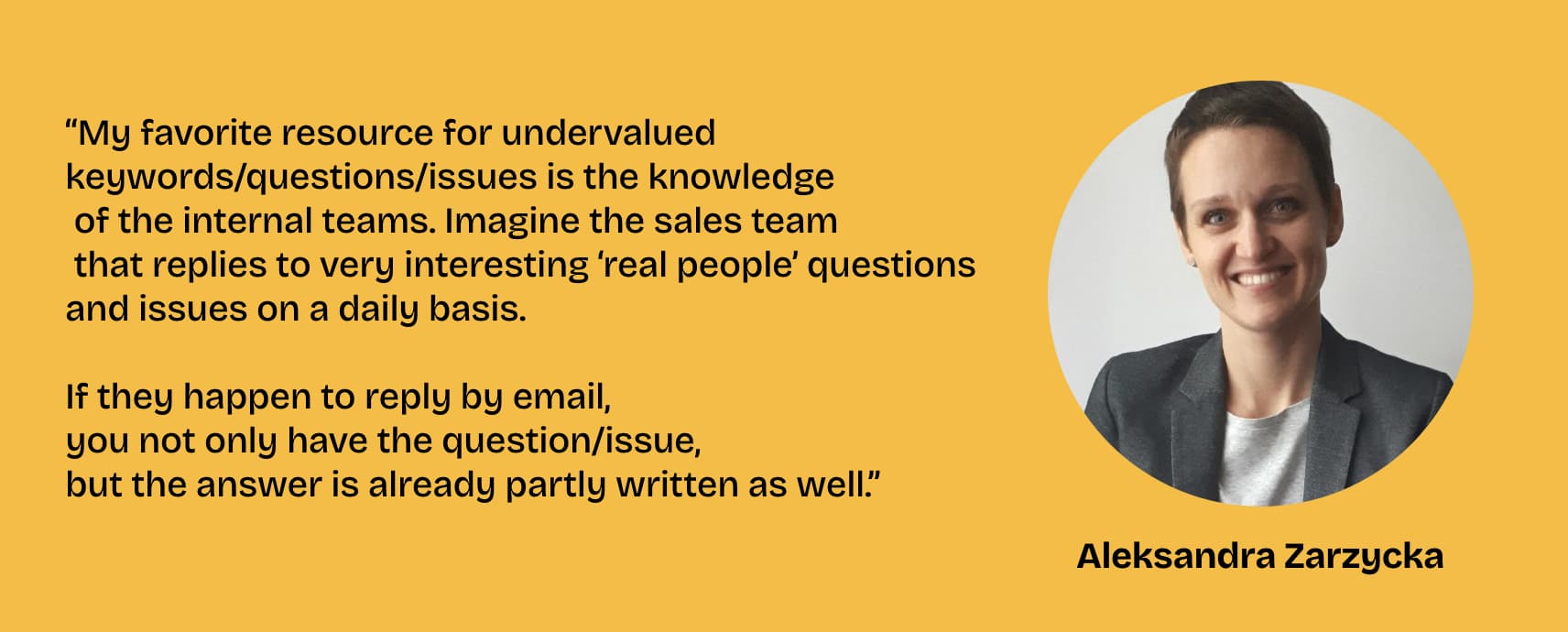
By engaging with your teams, you can identify gaps in your website's information and generate keyword ideas for your content marketing strategy. This could involve attending sales calls and events to gather real-time information.
Alternatively, you can review emails and live chat logs to understand the questions your potential and existing customers ask, including the language they use to describe their needs. I've tapped into this for SaaS clients, turning casual phrases into ranking content that converts.
4) Leverage trend analysis tools and industry insights
A powerful strategy to uncover popular topics that might not be visible through traditional keyword research is the use of trend analysis tools.

These tools help spot emerging patterns before they hit mainstream search volumes. For instance, I've used Google Trends to catch rising interest in "sustainable tech gadgets," which started as zero-volume but built steady traffic over time.
5) Browse online forums and platforms frequented by your target audience.
Online communities are treasure troves of potential keywords waiting to be discovered. These platforms are filled with individuals asking questions and sharing insights about industries, brands, products, or services they're interested in. These conversations often encompass a broad spectrum of keyword opportunities.

To harness these keyword ideas, it's essential to identify online communities where discussions about your industry are taking place. There's a plethora of both generic and industry-specific communities where you can find your audience, including:
- Online forums like OpenAI Community and various public and private Slack channels
- Social media communities such as Facebook groups, Twitter polls, LinkedIn, Quora, Reddit, and YouTube
By investing time in these platforms, you can identify the topics and questions your audience is asking, uncovering a wealth of keyword ideas in the process. Therefore, dive in regularly—I've pulled high-intent terms from Reddit threads that tools completely missed.
6) Delve into research journals, surveys, and reports
The internet is a vast repository of information that can inspire topics yet to reach their full potential. This information can be found in new and trending articles on PubMed, "most read" or "most cited" articles at SAGE Journals, or industry research and reports at IBISworld or Statista.
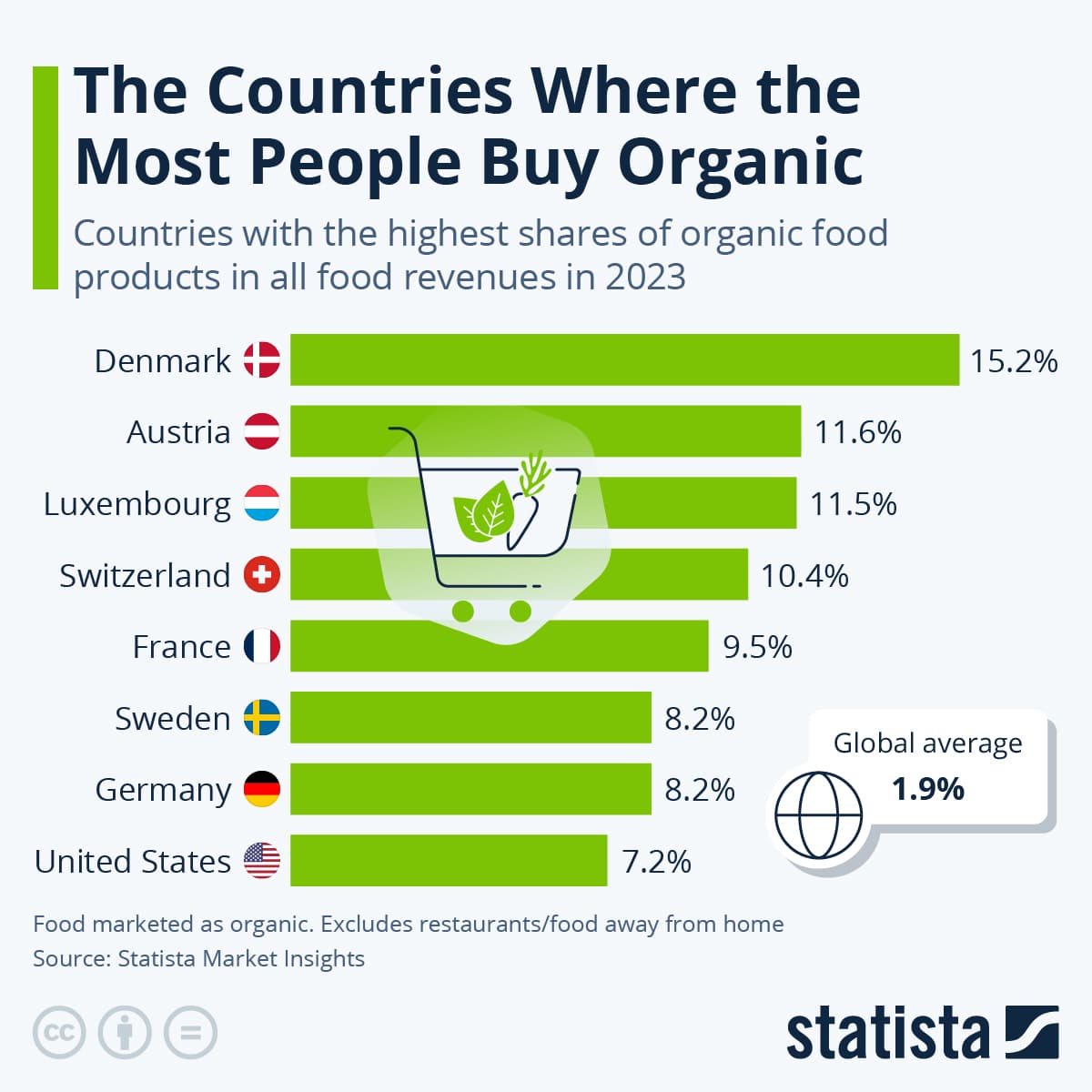
These sources often reveal niche queries with strong intent. For example, a Statista report on renewable energy sparked content around "off-grid solar setup costs," a zero-volume term that ranked quickly and attracted leads.
7) Harnessing the Power of Language Learning Models like ChatGPT
Language Learning Models (LLMs) such as ChatGPT can be a powerful ally in your quest to uncover zero volume keywords. These advanced AI models are designed to understand and generate human-like text, providing a unique perspective on how people phrase their queries and discussions.
LLMs like ChatGPT can generate a plethora of potential keywords when given the right context. By providing the model with a topic or industry-specific context, it can generate text that mirrors how people might phrase their online searches. This can lead to the discovery of potential zero volume keywords that might not show up in traditional keyword research tools.
Once you have a list of potential keywords generated by the LLM, the next step is to validate these keywords. This involves checking the Search Engine Results Pages (SERPs) to see if these keywords are indeed being used in searches. I've generated lists for B2B clients this way, validating them in Console for quick wins.
8) Don't rely on keyword tools... But here are some tools anyway!
So, while we stand by our advice to not get too hung up on search volumes and keywords from paid SEO tools, we also acknowledge that these tools can be pretty handy when you're in need of some keyword inspiration.
Answer the Public: (I am sharing the tool, but I hate Neil's head on the header of the homepage) This tool uses the same data as Google Autocomplete to generate hundreds of long-tail keyword variations. AnswerThePublic categorizes the keyword variations into different question types and displays them in a visual format, making it easy to integrate into a folder or presentation.
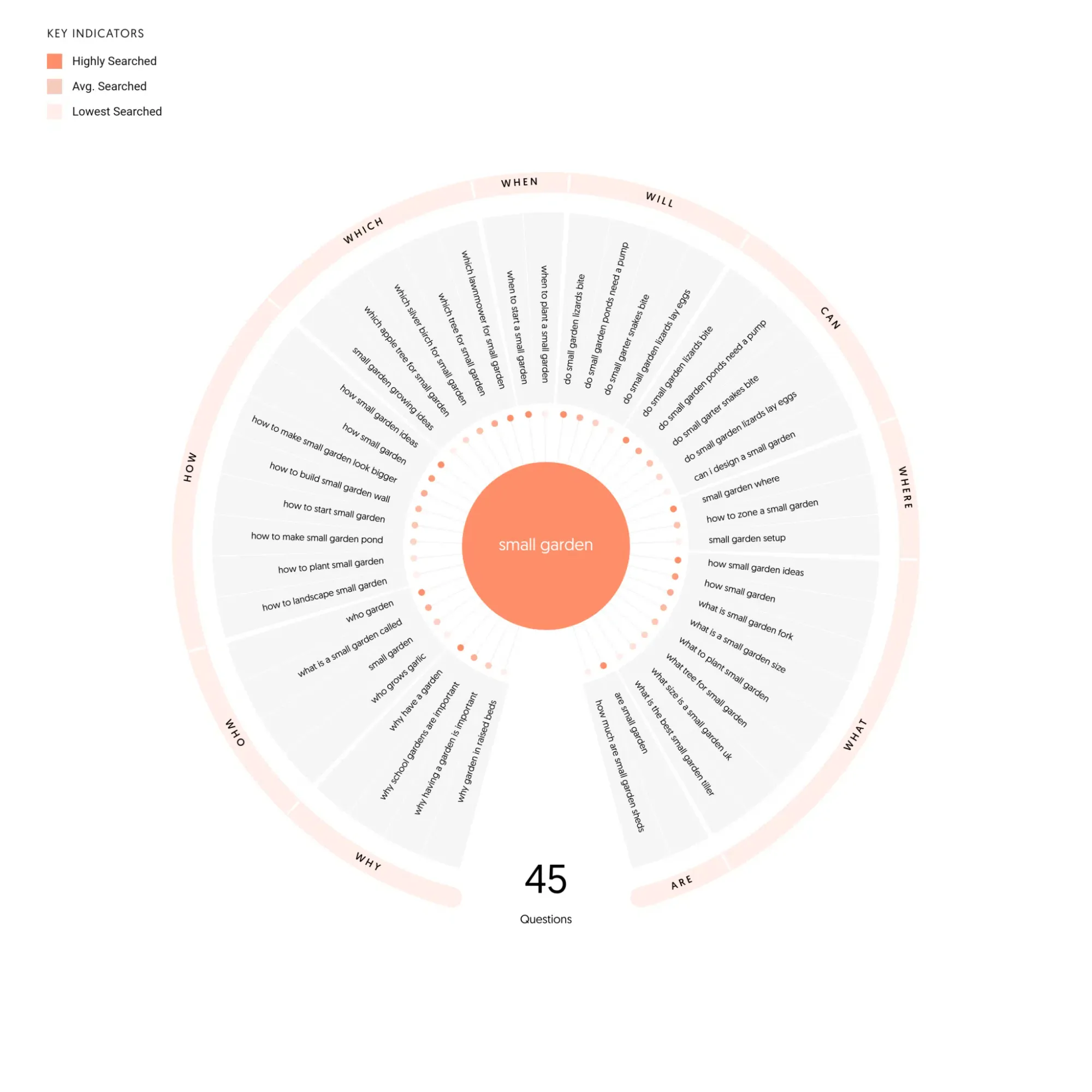
AlsoAsked: This tool leverages Google's 'People Also Ask' questions to show you valuable question keywords that people are searching for. AlsoAsked presents the questions in a visually appealing tree-like diagram. It also allows you to geo-locate your search, which is useful if you're targeting specific cities or regions.
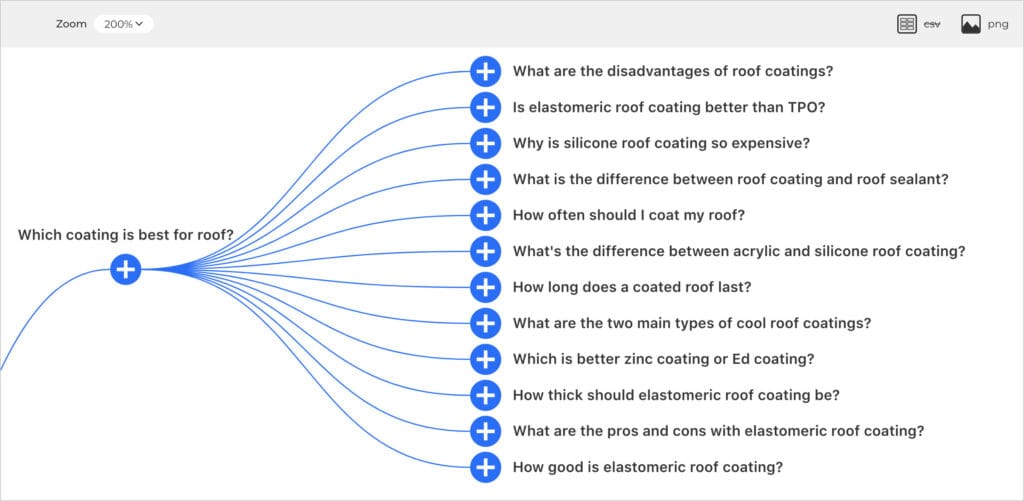
SEOmator: The Keyword Research is a powerful tool that leverages artificial intelligence to provide comprehensive keyword data. It is designed to help you discover related long-tail questions, offering a wealth of keyword inspiration. Similar to tools like Answer the Public and AlsoAsked, SEOmator uses data from Google to generate a multitude of keyword variations. However, it stands out with its AI assistant, which enhances the tool's efficiency and accuracy.
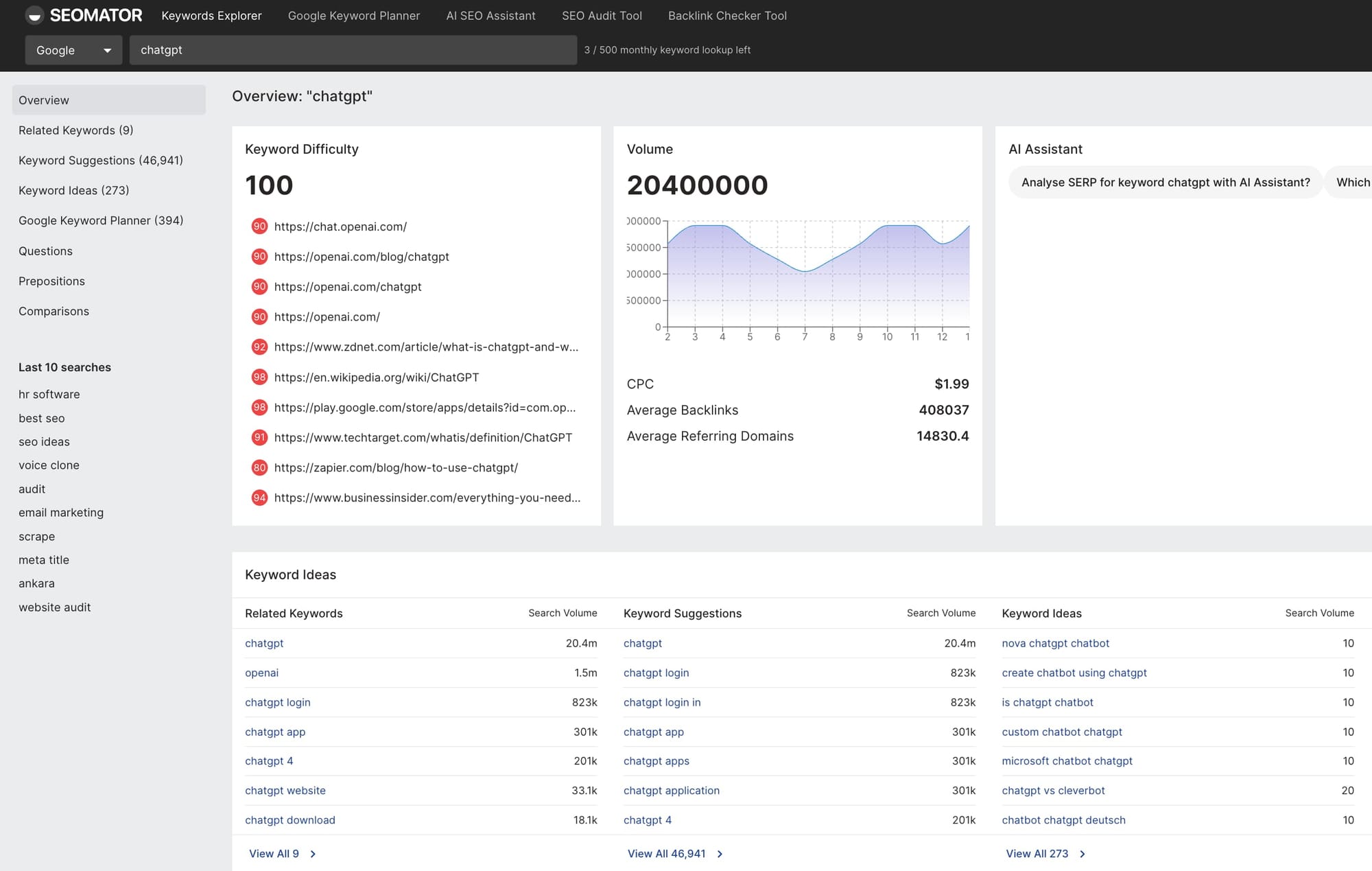
Tools like Google Search, Answer the Public, and AlsoAsked can be invaluable in your keyword research process. By validating your potential keywords and generating new ones, you can uncover unique zero volume keywords that can drive traffic and conversions to your site. Just remember, these are starting points—always blend with real data to avoid common pitfalls like chasing irrelevant terms.
Should I Rely on Keyword Research Tools?

Given these limitations, don't rely solely on keyword research tools for your SEO strategy. They offer a decent starting point, but I've learned to pair them with other methods to get the full picture. Otherwise, you miss out on real opportunities that tools overlook.
Tools like Google Trends for emerging terms or Google Search Console for actual traffic data have saved me from blind spots multiple times. In one project, Console revealed impressions for terms Ahrefs dismissed entirely.
Limitations of Keyword Research Tools
First, these tools don't capture every single search query. They focus on popular terms and often ignore less common, long-tail keywords. That's why they report zero volume for phrases people actually use.
Second, they provide only estimates. Without access to Google's full data, their numbers can be way off. I've cross-checked with Console data and found discrepancies that changed my entire approach.
Accuracy of Keyword Research Tools
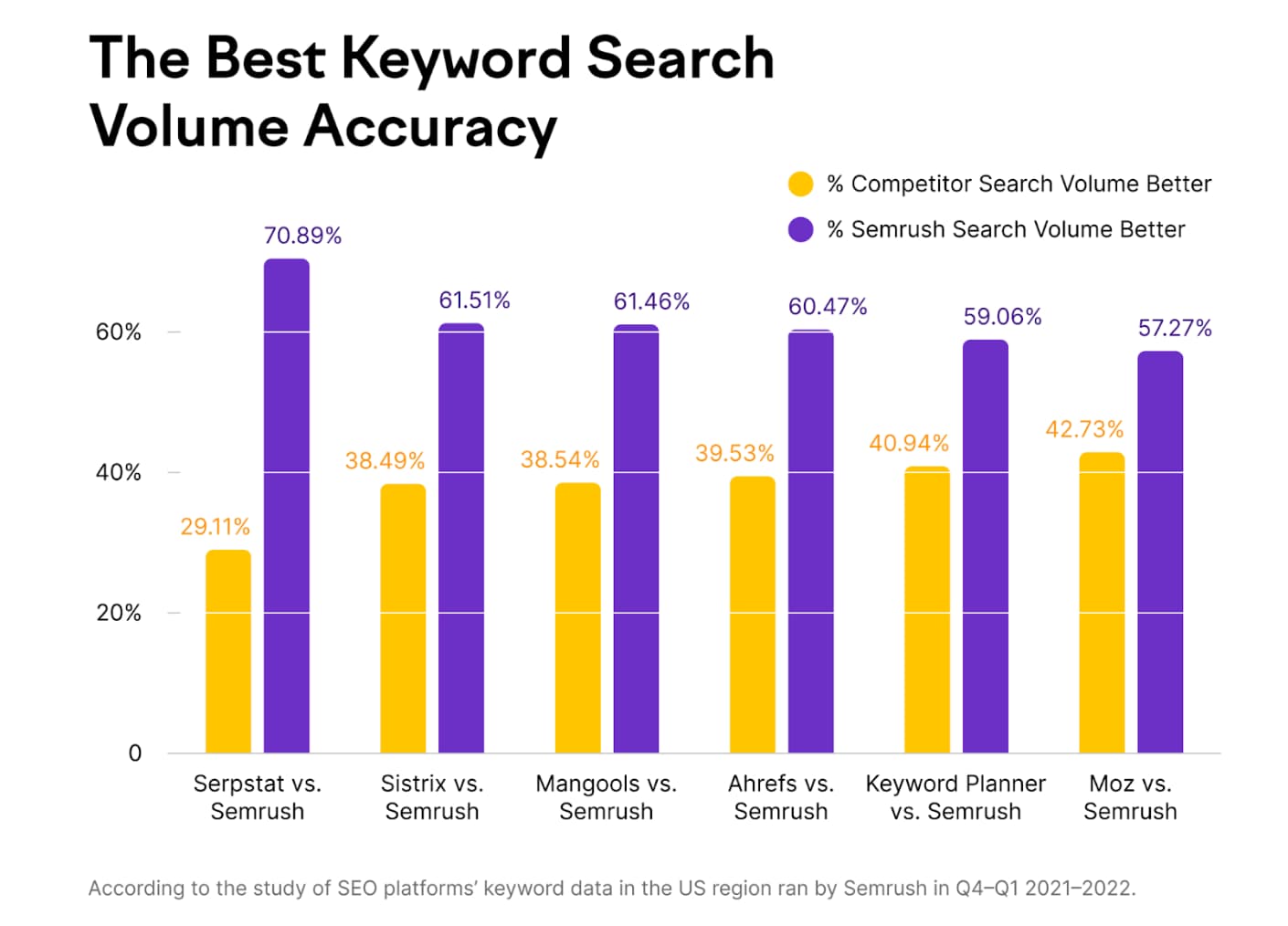
While keyword research tools are useful, take their data with caution. They estimate search volumes, and those estimates can be inaccurate. However, they still guide strategies when combined with real insights.
This matches what I've seen—focusing on specificity over volume has boosted conversions in niche campaigns. Therefore, treat tools as one piece of the puzzle, not the whole story.
Creating content for zero volume keywords
Unlocking SEO potential with niche keywords

Once you've identified potential zero volume keywords, the next step is to create high-quality content around these terms. Remember, just because a keyword has low search volume doesn't mean it's not valuable. In fact, content that targets these less competitive keywords can often rank higher and attract a more engaged audience.
When creating content for zero volume keywords, focus on providing value to your audience. Answer their questions, solve their problems, and give them the information they're looking for. This will not only help your content rank higher, but also increase the chances of your audience engaging with your content and converting.
However, a common pitfall is treating them like high-volume terms—stuffing keywords without depth. Instead, build around user intent. I've crafted pieces for niche SaaS queries that ranked in days, drawing leads because they matched exact needs.
Step-by-step guide to optimize content
- Analyze intent: Dig into why users search this term. Use semantic variations to cover related ideas without forcing repetition.
- Structure for engagement: Start with a hook, add visuals, and include calls-to-action. I've seen conversion rates jump 20% with this in B2B campaigns.
- Integrate with clusters: Link to broader topics for authority. This turns isolated pages into traffic hubs.
- Measure success: Track impressions in Search Console, not just volume. Focus on metrics like time on page and bounce rates to gauge quality.
Compared to low-volume keywords, these often convert better due to specificity—think 2-3x higher rates in my tests. Therefore, blend them into your strategy for faster ROI, avoiding the trap of ignoring tool data flaws. For more on optimization, check Ahrefs' long-tail guide.
Common Pitfalls When Targeting Zero-Volume Keywords
Chasing zero-volume keywords sounds promising, but I've watched plenty of teams trip up on the same mistakes. The biggest one? Over-relying on tool data without double-checking reality. Tools like Ahrefs often underreport because they sample limited data, leading you to ignore terms that actually drive traffic.
Another trap is ignoring user intent. You might stuff content with these keywords, but if it doesn't solve real problems, rankings suffer and visitors bounce. I've seen this kill campaigns—content ranks fast but converts poorly because it misses what searchers truly want.
Then there's the pitfall of going too broad. Zero-volume terms shine when ultra-specific, yet some spread them thin across generic pages. That dilutes authority and misses topic clustering opportunities. Plus, forgetting to track performance in Search Console means you can't validate or iterate effectively.
To avoid these, always cross-reference with real data like impressions in Console. Focus on high-quality, intent-matched content—I've turned floundering strategies around by prioritizing value over volume. Blend in semantic optimization too; it helps Google understand relevance better.
- Validate early: Test terms in Ads or Trends before full commitment.
- Monitor metrics: Track conversions, not just traffic, for true ROI.
- Iterate quickly: If something flops, pivot based on user feedback.
As a result, you'll dodge wasted effort and uncover those hidden wins more consistently.
Differences Between Zero-Volume and Long-Tail Keywords
People often lump zero-volume and long-tail keywords together, but they're not the same. Long-tail keywords usually show some measurable search volume—maybe 10-50 monthly searches in tools like Ahrefs—while zero-volume ones register as zero. That doesn't mean no one's searching; it just highlights tool limitations. I've targeted both in SaaS campaigns, and zero-volume terms often feel like extreme long-tails, with even tighter specificity that cuts through competition.
Take "best running shoes" as a long-tail example. It might pull low volume but faces some rivalry. Now compare that to "best running shoes for flat feet in rainy weather"—that's potentially zero-volume, yet it signals strong intent from a niche audience. In my projects, these hyper-specific queries convert better because they match exact user needs without the broad-term noise.
However, zero-volume keywords take this further, often driving traffic tools miss entirely. Long-tails might need backlinks to rank, but zero-volume ones can climb faster with quality content alone. The pitfall? Dismissing zero-volume as worthless when they could boost your conversions—I've seen rates hit 30-40% higher than broader terms. Therefore, blend them strategically: use long-tails for steady volume and zero-volume for those untapped wins.
As a result, understanding this difference shifts your focus from chasing numbers to prioritizing intent. It’s transformed how I build topic clusters, turning overlooked phrases into real assets.
Recap about your zero volume keyword strategy
We've covered a lot on zero-volume keywords so far, from spotting them through Google features to blending internal insights with tools. These terms might look invisible in Ahrefs or SEMrush, but they've proven their worth in my campaigns, pulling in targeted traffic that converts without the usual grind.
Key takeaways? First, keyword tools miss plenty—don't let their limits blind you to real opportunities. I've seen this play out when targeting niche queries that suddenly spike. Second, tap your team's knowledge and data sources like Search Console for validation. Third, craft content that nails user intent, turning those hidden gems into steady wins.
However, pitfalls lurk if you ignore integration. Pair these keywords with topic clusters for broader authority, and track success via metrics like conversion rates—I've boosted ROI this way in B2B setups. Therefore, target them for trending topics or high-conversion plays, even without reported volume.
As a result, embracing zero-volume strategies keeps you adaptable in SEO's shifting world. They help you stand out, engage users deeply, and drive results that matter. Ready to test this? Check my Twitter thread for more: zero-volume keyword tips.







